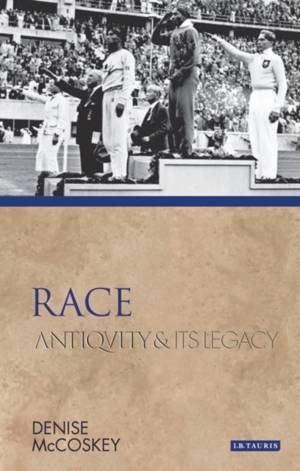
- Retrait gratuit dans votre magasin Club
- 7.000.000 titres dans notre catalogue
- Payer en toute sécurité
- Toujours un magasin près de chez vous
- Retrait gratuit dans votre magasin Club
- 7.000.0000 titres dans notre catalogue
- Payer en toute sécurité
- Toujours un magasin près de chez vous
Description
How do different cultures think about race? In the modern era, racial distinctiveness has been assessed primarily in terms of a person's physical appearance. But it was not always so. As Denise McCoskey shows, the ancient Greeks and Romans did not use skin colour as the basis for categorising ethnic disparity. The colour of one's skin lies at the foundation of racial variability today because it was used during the heyday of European exploration and colonialism to construct a hierarchy of civilizations and then justify slavery and other forms of economic exploitation. Assumptions about race thus have to take into account factors other than mere physiognomy. This is particularly true in relation to the classical world. In fifth century Athens, racial theory during the Persian Wars produced the categories 'Greek' and 'Barbarian', and set them in brutal opposition to one another: a process that could be as intense and destructive as 'black and 'white' in our own age. Ideas about race in antiquity were therefore completely distinct but as closely bound to political and historical contexts as those that came later.
This provocative book boldly explores the complex matrices of race - and the differing interpretations of ancient and modern - across epic, tragedy and the novel. Ranging from Theocritus to Toni Morrison, and from Tacitus and Pliny to Bernal's seminal study Black Athena, this is a powerful and original new assessment.
Spécifications
Parties prenantes
- Auteur(s) :
- Editeur:
Contenu
- Nombre de pages :
- 264
- Langue:
- Anglais
- Collection :
Caractéristiques
- EAN:
- 9781848851573
- Date de parution :
- 10-01-19
- Format:
- Livre relié
- Format numérique:
- Genaaid
- Dimensions :
- 140 mm x 218 mm
- Poids :
- 453 g

Les avis
Nous publions uniquement les avis qui respectent les conditions requises. Consultez nos conditions pour les avis.






